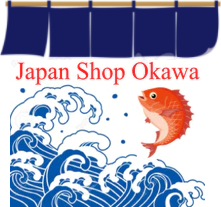What is Monjayaki? 🇯🇵🥘
Monjayaki (もんじゃ焼き) is a unique savory pancake or batter dish, best described as a very runny, savory crêpe or batter stew. It is a local specialty of the Kanto region, and it is most strongly associated with Tokyo, particularly the Tsukishima (月島) area.
Key Characteristics & How It's Made
Monjayaki is distinct from other Japanese pancake dishes, like Okonomiyaki, because of its consistency and the way it's prepared and eaten.
-
The Batter (The Key Difference): The batter is much thinner and more watery than Okonomiyaki batter because it contains a lot of dashi (Japanese stock) and has less flour. This is why it doesn't solidify into a thick cake.
-
Ingredients: The batter is mixed with finely chopped ingredients like shredded cabbage (the main ingredient), tempura bits (tenkasu), seafood (shrimp, squid), meat (pork, beef), or cheese.
-
Preparation (DIY Style): The fun part is cooking it yourself on a teppan (hot plate) built into your table.
-
Step 1 (The Wall): First, you take the solid ingredients (cabbage, meat, etc.) out of the bowl and chop them up small on the hot plate using two spatulas. You then stir-fry them.
-
Step 2 (The Doughnut): Once stir-fried, you form the ingredients into a ring or doughnut shape, creating a dam.
-
Step 3 (The Puddle): You pour the remaining thin, watery batter into the center of the ring you created.
-
Step 4 (The Mix): After the batter bubbles a bit, you mix everything together until the liquid thickens into a goopy, slightly crispy, and melted-cheese-like consistency.
-

How to Eat Monjayaki
You don't eat Monjayaki with chopsticks or a big fork. Instead, you use a small, specialized spatula (called a hagaeshi or kote).
-
You press a small amount of the cooked monja onto the hot plate using the spatula.
-
You then scrape that piece off and eat it directly from the spatula.
-
The edges that caramelize and get slightly crispy on the hot plate are considered the most delicious part.
In Summary
Monjayaki is a fun, communal, DIY dining experience that results in a unique, savory dish with a soft, gooey texture and a crispy bottom crust. It's a must-try cultural experience in Tokyo!
====================================================================
For travellers to Japan
We sell and deliver Japanese products to your hotel or airport while you stay in Japan.
More detail → Delivery service to Hotel

We sell and ship Japanese products from Japan to your address overseas.
More detail →Sell and ship overseas

====================================================================

